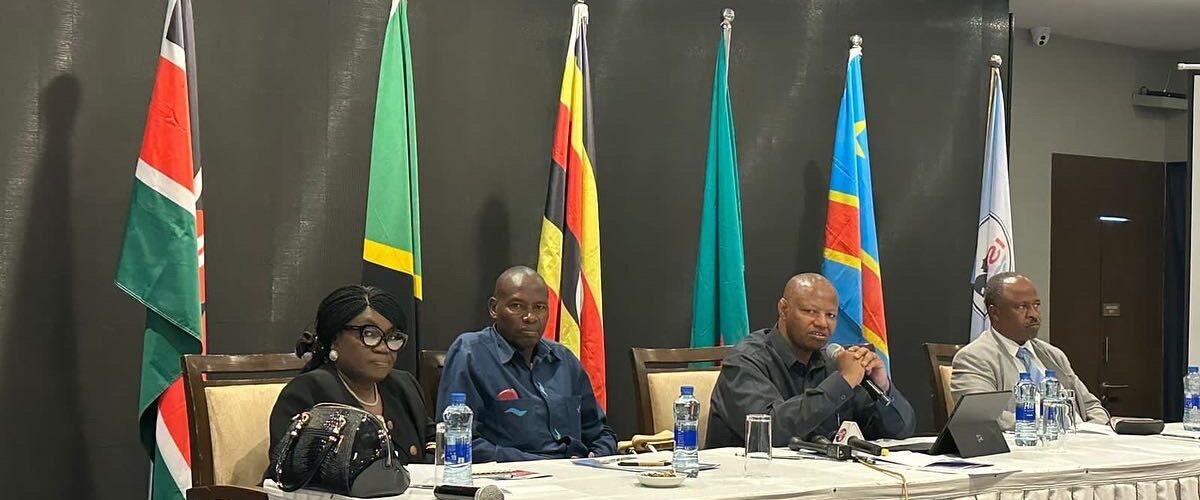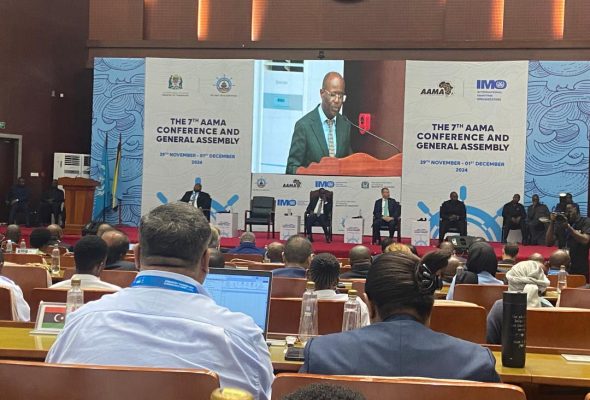
5 African countries under the leadership of ISCOS with the support of the African Shipowners Association gears up to establishment of A regional shipping line

RESOLUTIONS OF THE STAKEHOLDERS’ CONSULTATIVE FORUM FOR NATIONAL AND REGIONAL SHIPPING LINES AND MARITIME ADMINISTRATION HELD FROM 27TH FEBRUARY 2023 TO 1ST MARCH 2023 AT FOUR POINTS BY SHERATON HOTEL IN DAR ES SALAAM, TANZANIA
PREAMBLE
We, Stakeholders of the National and Regional Shipping Lines, who met from the 27th of February to the 01st of March 2023, comprising the following institutions:
United Republic of Tanzania: Ministry of Works and Transport (Transport), Tanzania Shipping Agencies Corporation (TASAC), Zanzibar Maritime Authority, Songoro Marine Transport Ltd, Marine Services Company Ltd (MSCL), SINOTASHIP, ZAN FAST Ferries, Express Shipping & Logistics (EA) Ltd and Ikraam Sealine.
Republic of Kenya: Kenya Maritime Authority (KMA) and LOTS Shipping East Africa Ltd.
Republic of Uganda: Uganda Railways Corporation (URC).
Democratic Republic of Congo: Lignes Maritimes Congolaise (LMC), Office of Multimodal Freight Management (OGEFREM) and Kalemie Ship Owners Association.
Republic of Burundi: Autorité Maritime, Portuaire et Ferroviaire (AMPF) and ARNOLAC Cargo Shipping.
Nigeria: African Shipowners Association (ASA).
Ivory Coast: Berakah-Rehoboth Eagle Shipping Company International (BRESCI).
RECOGNIZING that Shipping is responsible for moving over 90% of global trade each year connecting very distant importing centers to exporting ports at the lowest rate per metric ton moved by any transport mode and realizing that the loaded volumes of cargo are increasing at about 3% annually;
APPRECIATING the importance of shipping in moving basic commodities across the world and the movement of bulk and heavy cargo like minerals and raw materials and staples like grain around the world is only made possible by shipping;
ACKNOWLEDGING that as a mode, water transport is the greenest of all modes of transport with the mega ships only emitting 3grams of carbon dioxide per ton-kilometer moved as compared to road which emits 80grams per ton-kilometer and that with the global drive of cutting back on greenhouse emissions, shipping is poised to even go greener in the near future;
OBSERVING that over 1.3billion tons of cargo is shipped in and out of Africa as a continent and that almost all of it is carried by multinational liners domiciled outside Africa and that in particular, over US$20billion is paid annually in freight for the import and export of cargo in the region with little or no share going to national and regional shipping lines;
ADMITTING that of the countries with the most merchant ships, the top suppliers of merchant ships’ seafarers and the biggest ship building states, Africa does not have any and that much as Liberia is the second largest flag state by tonnage, almost all the vessels flying her flag are not owned by Africans;
BEING AWARE that the existing national and regional shipping lines are operating more on inland waterways and as feeder lines and that their capacities are limited, access to sustainable financing and manning to venture fully into scaled international shipping trade and that in some circumstances where there is sufficient cargo to move and government protection, the existing carrying capacity would only handle less than 10% of the cargo with the rest being handled by established multinational liners;
ACCEPTING that Shipping and Maritime Transport is a complex and highly technical segment whose initiatives require the expertise of institutions like ISCOS to coordinate and need a multi-stakeholder approach to identify industry gaps, investigate existing opportunities, highlight emerging issues and conceive mechanisms of addressing any bottlenecks in a collaborative manner;
CONVINCED that meaningful collaboration amongst national and regional shipping line stakeholders can enhance exchange and sharing of information at operational and policy making levels, facilitate the harmonisation of legislation, polices, practices and procedures across the region that would attract requisite investment in the subsector, consolidate ideas of the formation and operation of a regional and national shipping lines and can indeed be a useful tool for driving a culture of continuous improvement of the operations of the national shipping lines;
APPRECIATING that there is enough regional cargo to support the meaningful operation of regional and national shipping lines if regional stakeholders sufficiently collaborated and offered competitive freight rates and levels of service to the shippers who understand that supporting the local and regional players carries much more benefits to the local and regional industry that they wish to see develop and become more competitive;
NOTING that ISCOS’ mandate is to promote, protect and coordinate the shipping and maritime interests of Member States and the entire East, Central and South African region, ISCOS has conducted numerous studies intended to guide industry growth and is leading the development of a regional maritime transport policy which intends to fast track the development of a robust regional maritime and shipping industry;


